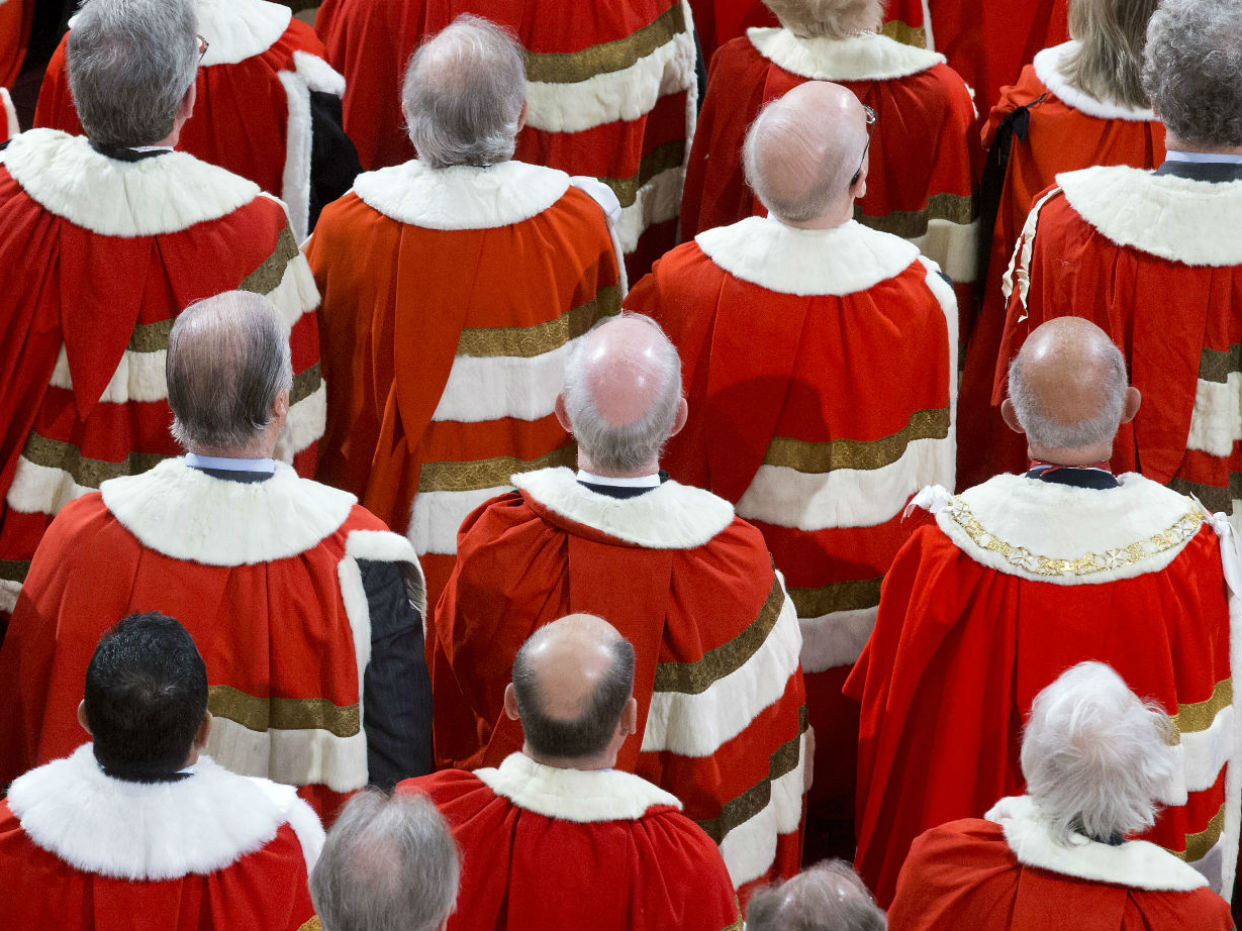How parliamentary privilege undid Philip Green
British businessman named in the House of Lords as man behind #MeToo injunction

A free daily email with the biggest news stories of the day – and the best features from TheWeek.com
You are now subscribed
Your newsletter sign-up was successful
Sir Philip Green has been named as the businessman at the centre of the British #MeToo scandal, three days after a judge granted an injunction to keep his identity secret.
The Daily Telegraph revealed on Tuesday that it had spent the past eight months investigating allegations of bullying, racial abuse and sexual harassment against the businessman, but was prevented from revealing details of five non-disclosure agreements.
The injunction, granted by Sir Terence Etherton, the second most senior judge in England and Wales, made it illegal for outlets in England and Wales to publish “the businessman’s identity or to identify the companies, as well as what he is accused of doing or how much he paid his alleged victims”, the paper reported.
The Week
Escape your echo chamber. Get the facts behind the news, plus analysis from multiple perspectives.

Sign up for The Week's Free Newsletters
From our morning news briefing to a weekly Good News Newsletter, get the best of The Week delivered directly to your inbox.
From our morning news briefing to a weekly Good News Newsletter, get the best of The Week delivered directly to your inbox.
The Telegraph, The Sun and iNews all reported the growing outrage at the use of use of gagging clauses to silence accusations of misconduct on their front pages yesterday, and called on MPs to invoke parliamentary privilege and reveal the name in Parliament.
In the end in was a Labour peer, Lord Hain, the former Leader of the House of Commons, who stepped forward.
Having been “contacted by an individual intimately involved in the case”, Hain told the House of Lords: “I feel it’s my duty under parliamentary privilege to name Philip Green as the individual in question given that the media have been subject to an injunction preventing publication of the full details of this story which is clearly in the public interest.”
What is parliamentary privilege?
A free daily email with the biggest news stories of the day – and the best features from TheWeek.com
Parliamentary privilege grants “certain legal immunities for Members of both Houses to allow them to perform their duties without interference from outside of the House”, according to the Houses of Parliament website.
Originally intended as a bulwark against interfering monarchs, it was enshrined in the 1689 Bill of Rights, which described it as a guarantee “that the freedom of speech and debates or proceedings in Parliament ought not to be impeached or questioned in any court of place out of parliament”.
More significant than monarchical meddling in the modern era, The Guardian says parliamentary privilege basically “enables politicians to speak freely in the houses of parliament without fear of being sued for defamation”.
Crucially, the media has the right to report what is said in parliament, allowing newspapers to circumnavigate the injunction.
Has parlimentary privilege been used this way before?
The most recent parallel to Hain’s decision to name Green happened in May 2011, when Liberal Democrat MP John Hemming identified footballer Ryan Giggs as the anonymous celebrity who had prevented the media from reporting details of an alleged affair using an injunction.
That year, Hemming also named former RBS boss Sir Fred Goodwin as having secured an injunction to prevent the publication of details of an alleged sexual relationship he had with a senior colleague.
The Independent says the Giggs scandal and a wave of other privacy controversies in 2011 “sparked calls for legal reform, with MPs and campaigners saying practices barring the media in England and Wales publishing matters reported freely in Scotland, other countries and on social media were outdated and unfair”.
-
 6 of the world’s most accessible destinations
6 of the world’s most accessible destinationsThe Week Recommends Experience all of Berlin, Singapore and Sydney
-
 How the FCC’s ‘equal time’ rule works
How the FCC’s ‘equal time’ rule worksIn the Spotlight The law is at the heart of the Colbert-CBS conflict
-
 What is the endgame in the DHS shutdown?
What is the endgame in the DHS shutdown?Today’s Big Question Democrats want to rein in ICE’s immigration crackdown
-
 The power the Church of England has in the UK
The power the Church of England has in the UKfeature Critics have questioned the relevancy of the Church’s influence in schools and politics
-
 Home Office worker accused of spiking mistress’s drink with abortion drug
Home Office worker accused of spiking mistress’s drink with abortion drugSpeed Read Darren Burke had failed to convince his girlfriend to terminate pregnancy
-
 ‘The House of Lords is reaching peak Looney Tunes’
‘The House of Lords is reaching peak Looney Tunes’Instant Opinion Your digest of analysis from the British and international press
-
 In hock to Moscow: exploring Germany’s woeful energy policy
In hock to Moscow: exploring Germany’s woeful energy policySpeed Read Don’t expect Berlin to wean itself off Russian gas any time soon
-
 Were Covid restrictions dropped too soon?
Were Covid restrictions dropped too soon?Speed Read ‘Living with Covid’ is already proving problematic – just look at the travel chaos this week
-
 Inclusive Britain: a new strategy for tackling racism in the UK
Inclusive Britain: a new strategy for tackling racism in the UKSpeed Read Government has revealed action plan setting out 74 steps that ministers will take
-
 Sandy Hook families vs. Remington: a small victory over the gunmakers
Sandy Hook families vs. Remington: a small victory over the gunmakersSpeed Read Last week the families settled a lawsuit for $73m against the manufacturer
-
 Farmers vs. walkers: the battle over ‘Britain’s green and pleasant land’
Farmers vs. walkers: the battle over ‘Britain’s green and pleasant land’Speed Read Updated Countryside Code tells farmers: ‘be nice, say hello, share the space’